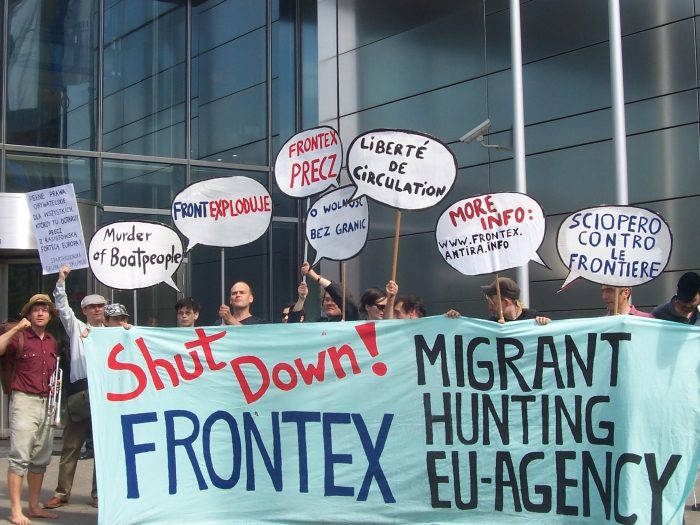
After months of debate and controversy, the director of the European border and coast guard agency Frontex, Frenchman Fabrice Leggeri, finally resigned on April 29th, after being disavowed by the board of directors of this institution.
Fabrice Leggeri has been in the EU’s crosshairs since October 2020. He was appointed head of Frontex in 2015, but for nearly two years the Warsaw-based agency has been accused of tolerating, and even accepting, illegal deportations of migrants at the EU’s borders—i.e., sending migrants back automatically without giving them the opportunity to invoke the right of asylum. It was also criticised for its brutal treatment of intercepted migrants, and its insufficient recruitment of “fundamental rights officers.”
The accusations, relayed by Der Spiegel since 2020, have multiplied against the man for embodying a “hard” anti-immigration political line in Europe. The Swedish European Commissioner for Migration and Security and Frontex’s supervisory authority, Ylva Johansson, ended up requesting an investigation by OLAF, the EU’s anti-fraud agency. The procedure eventually led to a request for disciplinary sanctions against Leggeri, who chose to resign.
Frontex has seen a considerable increase in power in recent years. It has become the largest agency in the European Union, with a budget of almost one billion euros and 2000 employees. Fabrice Leggeri has also been criticised for his management of staff, and his methods, which are considered too authoritarian and too disrespectful of the administrative procedures in force.
Leggeri’s departure has been hailed as a victory by migrant NGOs and the Left in the European Parliament. “The director’s resignation is a first step in putting human rights on the agency’s agenda. Now we need fundamental changes in its structure and culture,” tweeted Dutch Green MEP Tineke Strik.
Ontslag Frontex directeur Leggeri is eerste stap om mensenrechten hoog op de agenda te krijgen in het Agentschap. Nu grondige wijziging structuur en cultuur Frontex. Maar ook lidstaten en Commissie moeten hun verantwoordelijkheid nemen om pushbacks effectief uit te bannen.
— Tineke Strik (@Tineke_Strik) April 29, 2022
Beyond the procedural issues, the problem is clearly political. Behind Leggeri’s departure lies the question of Europe’s choices in terms of migration policy: should it favour firmness and control, or on the contrary, put forward the defence of migrants’ rights? By pushing Leggeri out, the European Union has clearly chosen. The main criticism levelled at the senior official lies in his failure to respect the principle of “non-refoulement,” which is enshrined in the Geneva Convention: the Convention prohibits the return of an asylum seeker if his life is in danger in his country of origin. This principle is currently interpreted very broadly by pro-migrant NGOs, which consider that every migrant is potentially an asylum seeker.
Subject to media and moral pressure from militant associations, European migration policy remains unclear. Rodrigo Ballester, in the columns of Atlantico, denounces the “legal uncertainty” that is deliberately maintained in order to undermine the work of European border guards. With Leggeri’s resignation, the question of the viability of this migration policy and the human and legal means associated with it has been raised. Reconquête MEP Nicolas Bay condemned Leggeri’s ousting as a “political cabal.” For him, Leggeri’s resignation is an “alarm signal:” that of Brussels’ desire to transform the border control agency into another NGO serving migrants.
